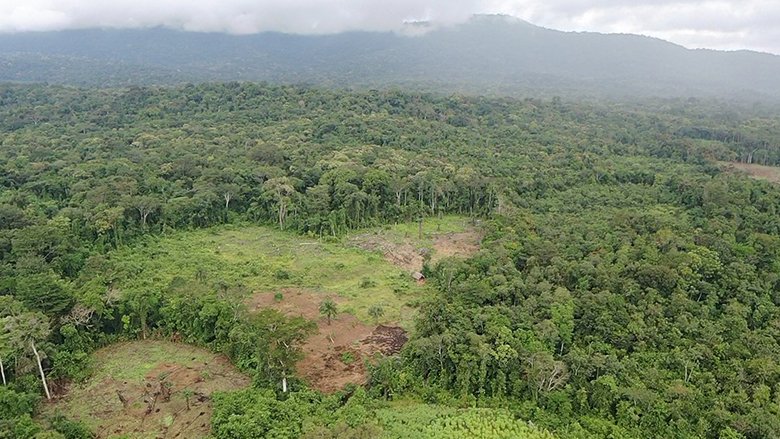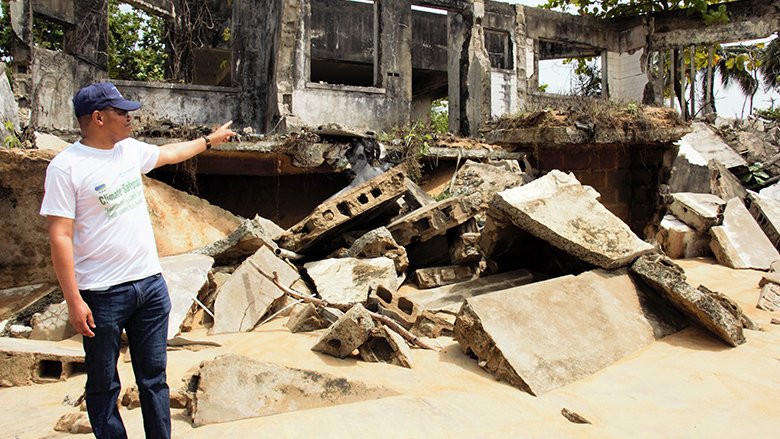1. Introduction
The Government of Liberia, with the support of the Kingdom of Norway and the World Bank is organizing a high-level Forest and Climate Resilience Forum, on February 2-3, 2023, with the specific purpose to catalyze renewed commitments and strengthen partnerships in sustainable forest management as a key strategy supporting the President of Liberia’s pro-poor agenda for economic development.
The importance of Liberia’s forests to its economic development cannot be overstated, nor can the global significance of its forests be overlooked due to their unique biodiversity and potential for climate change mitigation. The forest sector in Liberia is a significant source of livelihood for rural Liberians, with over one-third of Liberia’s population (or 1.5 million people) living in forested areas and dependent on the forest for their livelihoods, including forest products and the ecosystem services that they provide. The Forest sector contributed 10 percent of the GDP annually in 2014–2016. In 2015, it was estimated that around 10,400 people were directly and formally employed in the sector.
Liberia contains about 7.5 million ha of lowland tropical forest1, including two important massifs of forest in the southeast (evergreen lowland forest) and in the northwest (semi-deciduous mountainous forest). Altogether, Liberia’s forests constitute 43 percent of the remaining Upper Guinean Forest of West Africa—a global biodiversity hotspot—and covered approximately 69 percent of Liberia’s total land surface as of 2018/2019.
Liberia’s forest sector has the potential to contribute to the reduction of extreme poverty and support increased prosperity along a low emissions development trajectory. However, the remaining forest blocks are under increasing threat due to their continued degradation and clearance for agricultural expansion, and illegal logging and mining activities at both industrial and subsistence levels. The deforestation rate was estimated at 0.46 percent per year for the period 2005–2015, based on the available data. Thanks to the support from the World Bank, Kingdom of Norway, the European Union, DFID, and other critical development partners, Liberia has made steady progress in sustainable forestry management. The present rate of progress is, however, not considered sufficient for the forest sector to reach its potential in contributing to
national development, including rural livelihoods. There is a risk that this potential will be wasted and the associated development objectives will not be fully realized without achieving renewed commitments, especially those made at COP26 in November 2021, and progress on existing agreements to cooperate to reduce deforestation and enforce sustainable forest management.
Improved forest utilization through competitive value chains and market linkages for food and income security, economic growth, and job creation are some of the key objectives of the ProPoor Agenda for Prosperity and Development. Therefore, this forum will bring together key stakeholders including local and regional ministers, parliamentarians, community leaders, global experts on forests, economic development, and climate change, private sector leaders, and development partners to outline opportunities and mitigate threats to the sector, and to reaffirm mutual commitments to sustainable forest management as an integral part of Liberia's economic development.
The Forum will provide a platform for high-level stakeholders to discuss key areas of progress, challenges, and next steps in the forest sector, using local and regional examples. It will highlight and showcase Liberia’s progress in forest and climate resilience policy, and tangible successes on the ground in relation to sustainable forest management, community forestry, conservation forestry, among others. The Forum will also explore lessons learnt from other parts of the world and regionally regarding sustainable forest management, to inform future development of the sector in Liberia. This will ultimately provide possibilities for next steps in advancing forestry together with livelihoods, agriculture, climate resilience, and infrastructure.
2. Objectives
The main objective of the Forest and Climate Resilience Forum is to catalyze partnerships and renew political commitments and broad interest at the highest level in sustainable forest management as a key strategy supporting the Liberia pro-poor agenda for economic development. The Forum presents an opportunity to take stock of policies and interventions, deepen understanding of forests’ multi-sector roles, and generate ideas towards meeting Nationally Determined Commitments (NDCs) from COP26, and to reconfirm commitments to work with partners and share knowledge in the context of natural resources management driven by comprehensive and scientific approaches to achieve sustainability in shared objectives.
Specifically, the Forest Forum endeavors to:
- Recognize the role forests play in revenue generation, providing livelihoods, and mitigating and adapting to climate change;
- Identify and assess options to advance and upscale forestry objectives in Liberia and the region; and,
- Assess necessary requirements, experience to date, and key potential opportunities to advance carbon market frameworks and investment in Liberia.
3. Focus areas
In light of the recent COP26 announcement by the President of Liberia of the establishment of an African Carbon Market based on the mitigation benefits the forests provide, the nexus of forestry, climate, and carbon markets is an integral aspect of this forum. Defining the benefits amassed from forests for both mitigation and adaptation of climate change and determining sustainable approaches to carbon markets will provide a stronger understanding of how to better manage forests to ensure these benefits continue to be harnessed into the future.
The following is an indicative program
DAY 1: How Can Forest Management Best Advance Sustainability and Climate Change in Liberia and the Region?
Keynote presentations on:
- The business case for transitioning Liberian forest management towards carbon markets: Achievements, and work to be done
- Regional experience and requirements for major forestry initiatives: Successes and challenges
- Lessons from the hard work of capacity building: The Liberian Forestry Sector Project
High-level Regional Ministerial Roundtable: What is working in forestry and carbon finance, and how to address key barriers?
Leverage forests for sustainable development and climate benefits?
- Creating the enabling environment for sustainable forest management and REDD+ governance
- Methods and policies to enhance forestry's role in economic development
- Addressing land tenure issues in climate forestry
- Community forestry success stories and challenges
- Forestry and agriculture in the context of communities
DAY 2: Directions in sustainable forest management and climate resilience in support of the Liberia pro-poor agenda for economic development
Sustainable forestry in Liberia – Learning from LFSP and other projects
- Carbon accounting, FREL, and MRV lessons and remaining issues
- Liberia REDD+ in the Context of Forest and Climate Resilience
- Community forestry and livelihoods lessons
- Conservation forestry for climate: how feasible is it to achieve at scale?
- Is Reduced Impact Logging an important tool in Liberia's context?
- Forestry and youth
Advancing carbon markets in Liberia and the region: Investment experience
- Capitalizing on REDD+ Readiness achievements: What is needed to advance carbon markets in Liberia and the region?
- How to leverage corporate investment interest modalities in forests produce climate and livelihood benefits?
- Forest to carbon concessions: Are there carbon finance opportunities for private concessions?
- Is there a private role in VPS process or GEF/GCF Adaptation funding?
Development Partner Roundtable - Priorities for global and regional development Finding a way forward - Identifying feasible ways to advance carbon markets
- Potential sources of support
- The role of communities and civil society
- The role of the private sector
- Supporting decision making
4. Format
The forum will include:
- Keynote addresses by high profile speakers presenting inspirational global, regional, and national perspectives,
- Plenary sessions: thematic presentations followed by moderated discussions,
- Success stories: succinct presentations showcasing successful forest sector activities. Multiple success stories will be presented back-to-back in one session,
Round table discussions: panel discussions presenting global and regional perspectives on forest and climate resilient topics pertinent to the Liberian context.
5. Forum Dates
Development Partners meeting on the Liberia Forest Sector will be held back-to-back to the Forest Forum, the proposed dates are as follows:
- Wednesday 1 February - Arrival of foreign participants
- Thursday 2 February – Forest Forum 1st Day
- Friday 3 February – Forest Forum 2nd Day
6. Expected outcomes
A reconfirmation of commitments by the Government of Liberia, development partners, and key stakeholders to work together towards shared objectives in the forest sector, enhance and provide guidance in strengthening on-going activities, seek new opportunities, and address challenges in a spirit of honest dialog and cooperation with timebound benchmarks.
7. Proposed Venue
The Forum will take place at the Ministerial Complex located in Congo Town.
8. Attendees
This high-level forum will be opened by the President of Liberia. The President will be joined by Liberian Cabinet Ministers, Community Chiefs, leaders, and representatives, Regional Ministers, foreign dignitaries, government officials, parliamentarians, researchers and academics, development partners, business leaders, civil-society organizations, and other key stakeholders.

